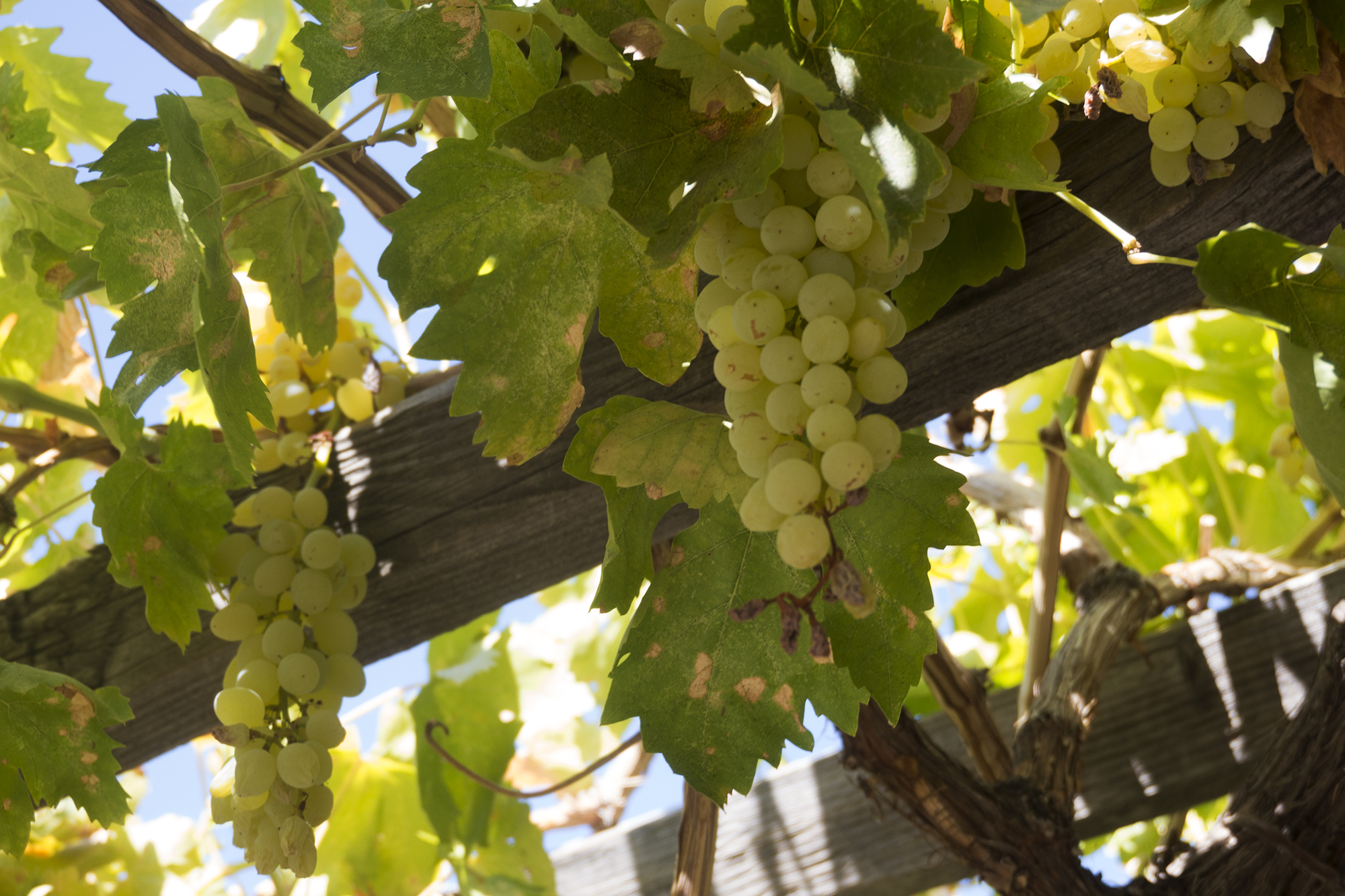
Aesop’s Fable
One hot summer’s day a Fox was strolling through an orchard till he came to a bunch of Grapes just ripening on a vine which had been trained over a lofty branch. “Just the thing to quench my thirst,” quoth he. Drawing back a few paces, he took a run and a jump, and just missed the bunch. Turning round again with a One, Two, Three, he jumped up, but with no greater success. Again and again he tried after the tempting morsel, but at last had to give it up, and walked away with his nose in the air, saying:” I am sure they are sour.”
It is easy to despise what you cannot get.

In our Faultline Garden bunches of grapes are now tantalizing within reach. (You might even find some in a basket among other breakfast items.) It is July, when the temperatures sweep over 100o F that the grapes reach full ripeness. On hot days the Red Flame Tokay beg to be plucked and crushed between your teeth; tart sweet juices spread across your tongue, bathing your taste buds in remembrance of heavenly summer days past, swinging in a hammock, plucking from the vine.
We are often asked if we make wine from our grapes, certainly in high summer there seems to be enough ofthem. But no, the four kinds* of grapes dangling from the arbor, are for eating only. But, it is tempting.
Viticulture is so remote in time that we cannot be certain when it started. Grapes were one of the first plants under domestication; and, because of the ease with which they ferment, wine making is probably as old as cultivation. The first wine may have been a delightful accident of storage, predating cultivation and later encouraging it.
As delicious as grapes are, they are not necessary to anyone’s diet. Yet they have colonized all compatible climate zones and frequently their cultivation has usurped the land needed for essential food supplies. Historians provide three reasons for this: the social importance of alcohol; the ability of alcohol to release the spirit of the human mind; and, the profit to be made from its sale.
In Greece, by the time of Homer, wine was the ordinary drink of all classes with maidens and children also drinking wine. Regarded as one of the country’s natural products, and sanitation being what it was, it may have been healthier than the available water.
Wine is mentioned throughout the Bible. Jesus compared himself to the “true vine” and his disciples were the branches. JOHN 15: 1-6 “I am the true vine, and my Father is the husbandman.”
Spanish missionaries brought the vine to Mexico, then Baja California, and finally, Upper California. From that early introduction, the commodity value of grapes in the United States, fresh and processed, is now in the billions of dollars.
Out here, one of our favorite summer drinks is cold fresh grape juice, either straight up or add about one/third sparkling water. Or, something not available to the early viticulturists, plop them in the freezer and eat ‘em like tiny popsicles. Yum.
* Thompson white seedless, Red flame tokay, Seeded red tokay, and Concord






